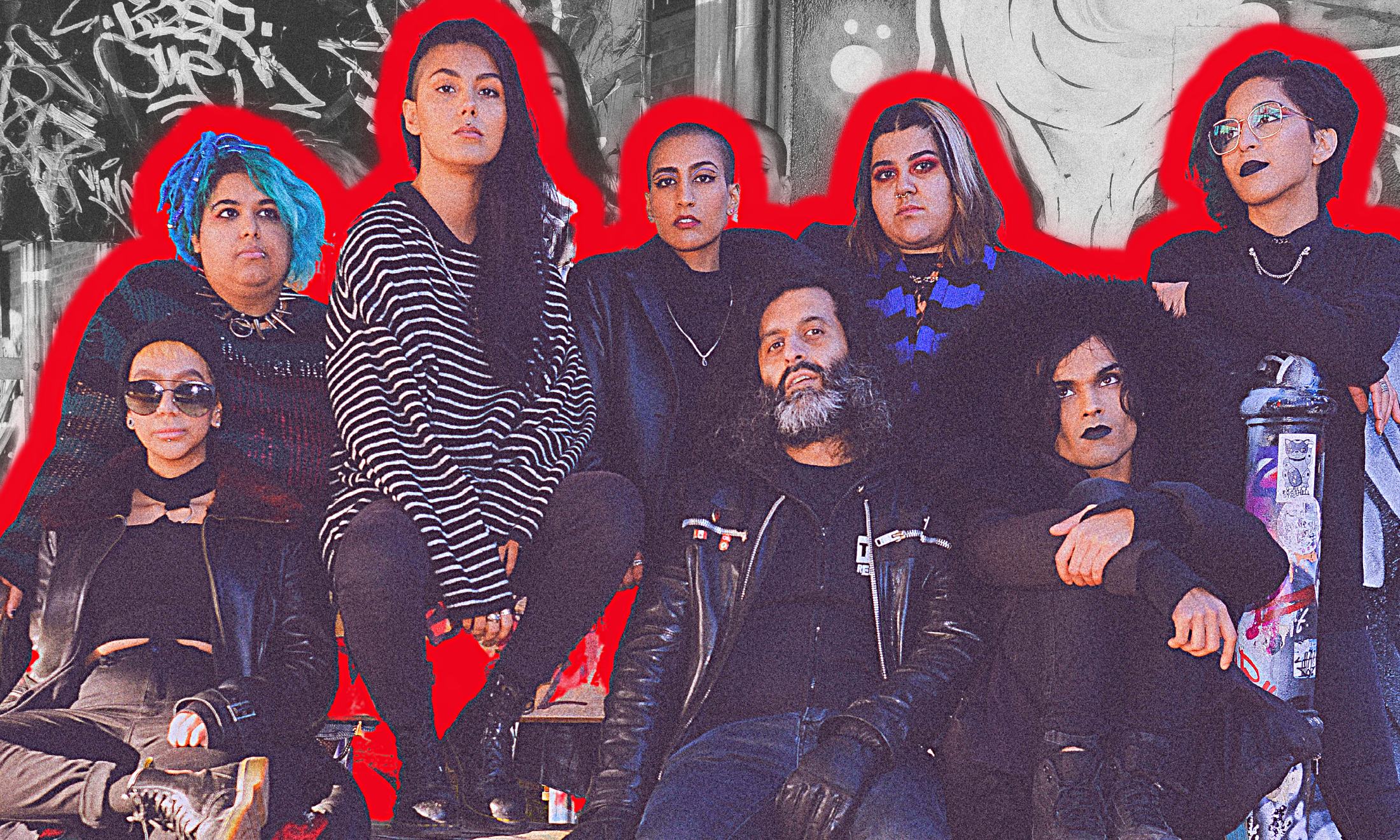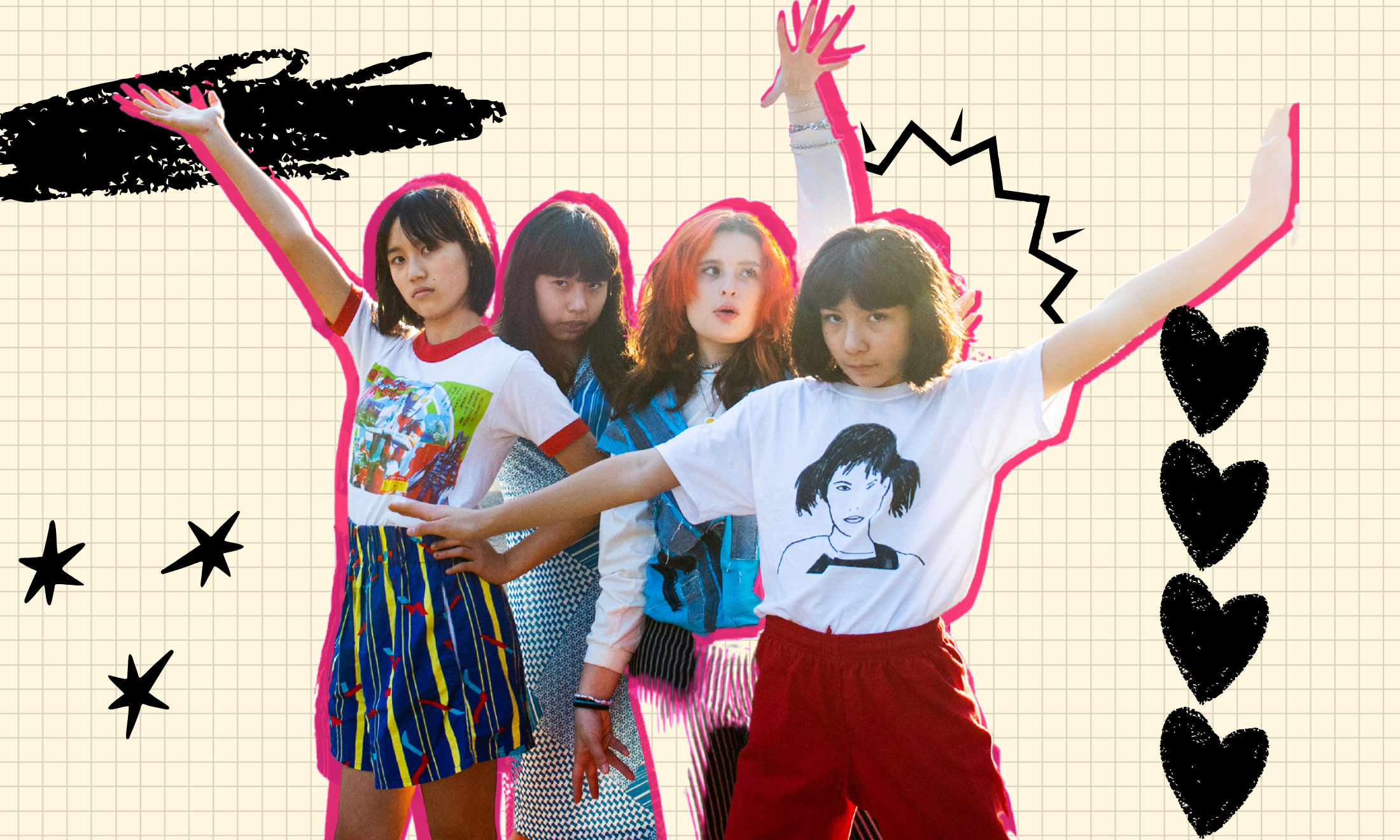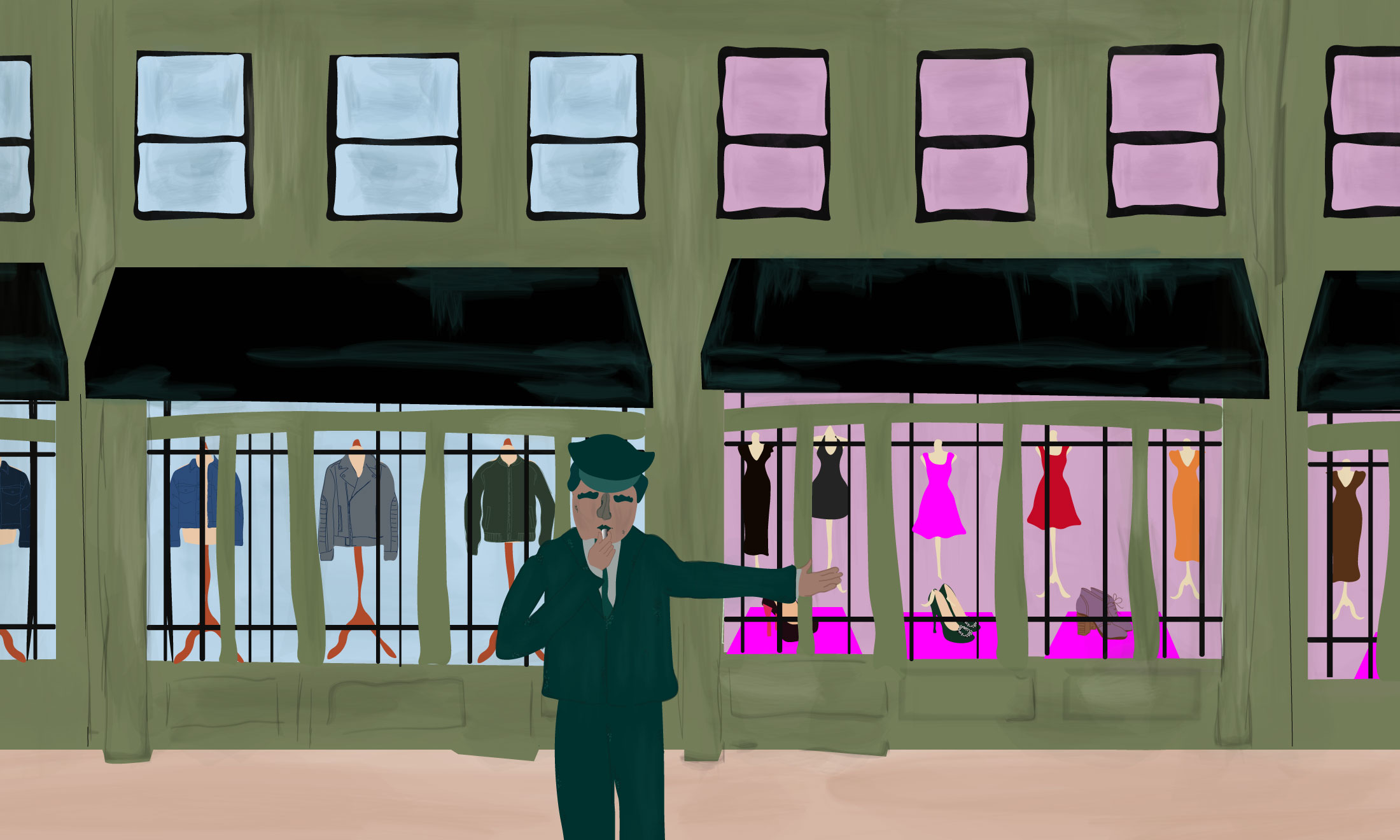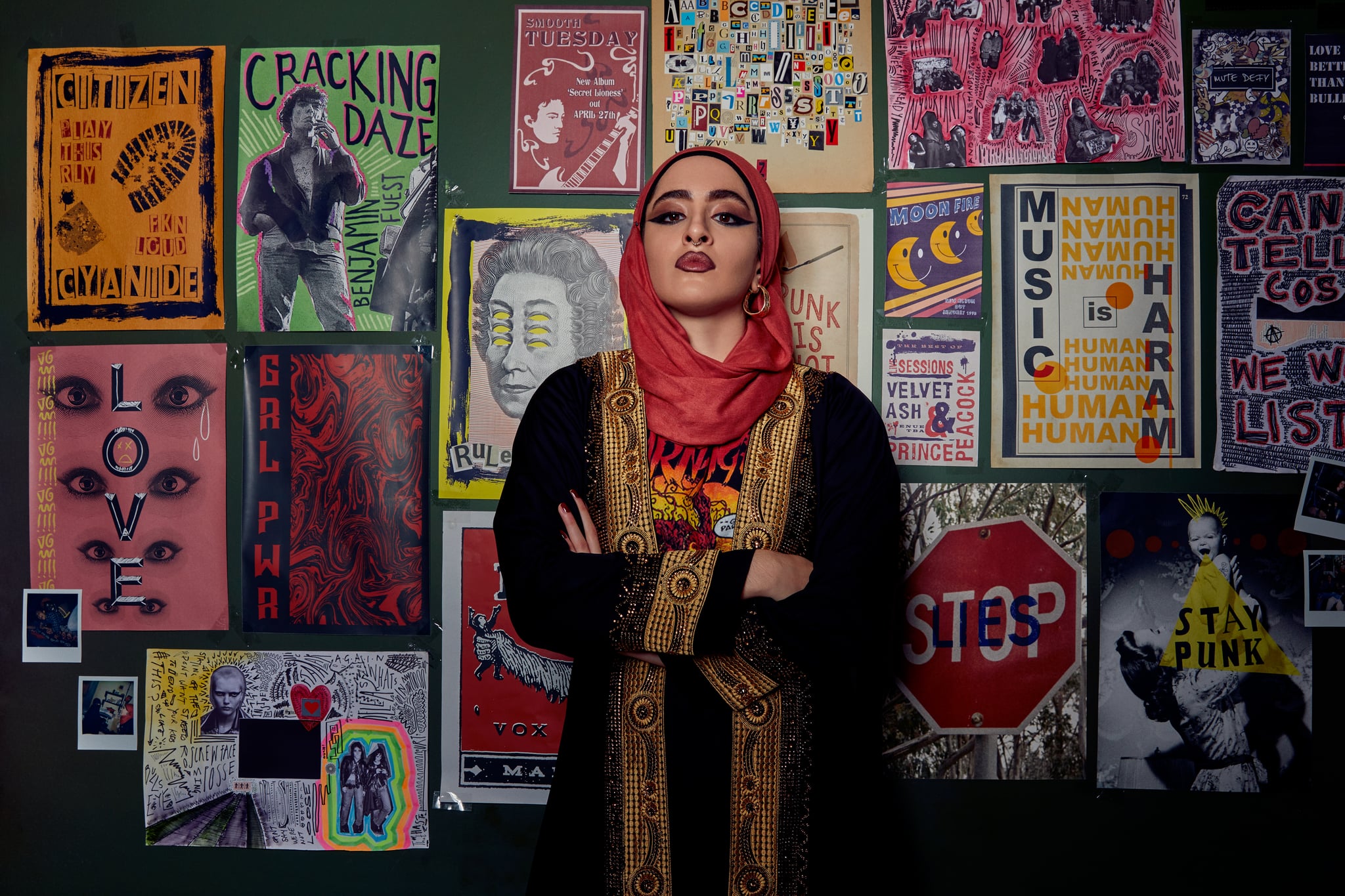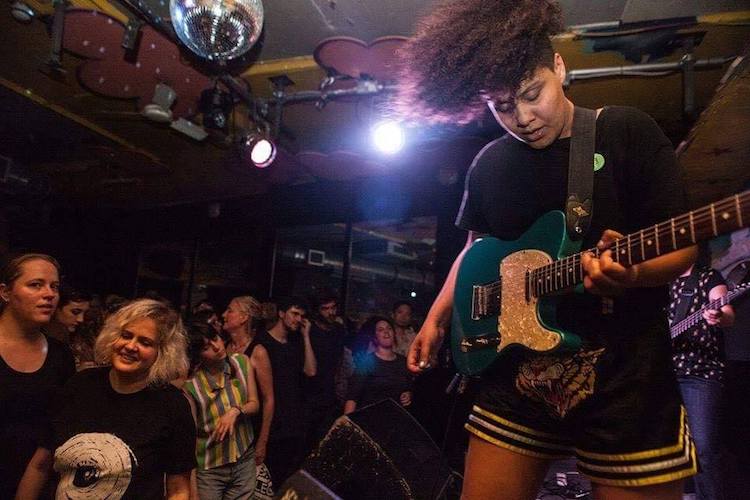
Highlife, Sleater-Kinney and identity: in conversation with Trash Kit’s Rachel Aggs
Steph Phillips
26 Dec 2016
Very few people have made such an impact on DIY punk music as guitarist and singer Rachel Aggs. She came to most people’s attention in 2009 as part of punk trio Trash Kit. Their sound is complex, channelling experiment bands like The Raincoats and Marnie Stern with melodic harmonies and polyrhythmic drum beats. She went on to form the ultimate post-punk party band Shopping whilst also playing in the pop duo Sacred Paws.
Loved by music nerds, punks and pop fans alike, she’s an underappreciated staple on the DIY punk scene and as a musician her melodic guitar has become as recognisable as her sung-spoken vocals and tumultuous hair do that always covers her face ever so slightly. Her fame is slowly starting to rise though; Aggs was recently named by i newspaper as one of the unsung heroes of British indie music and has gone on tour after tour with Shopping, the hardest working band in punk.
Meeting her in person, she’s warm, funny, softly spoken and perhaps unaware of the influence she’s had on other people. As a queer woman of colour, she is a shining beacon to other outsiders who didn’t know they had permission to get on stage just like she did.
“I didn’t want to learn strummy songs. I liked Sleater-Kinney because they didn’t have any of that.”
Let’s go back to where she started. Aggs grew up in a musical family playing her first instrument, the piano, at three years old and moving on at age seven to playing folk music on violin with her dad. She didn’t pick up an electric guitar, the instrument she’s known for, until she was 20.
“I didn’t want to learn strummy songs,” says Aggs. “I liked Sleater-Kinney because they didn’t have any of that. It was all super melodic guitar lines weaving in and out of each other and I found that really fascinating because I grew up listening to folk music being a really pretentious child.”
After attending art school at Oxford University, which Aggs describes as “horrible”, she formed a folk band called the Madrigals. When the band broke up Aggs and Madrigals drummer Rachel Horwood decided they’d “actually quite like to make loud music one day” and formed Trash Kit.
“I want to treat every project with respect and the time that it needs. Sometimes I worry I don’t do that because I’ve over committed and also I don’t have any money.”
Aggs says: “We went to see Mika Miko; I remember going to that show and saying to Rachel ‘Oh my God, we need to start a band’.” Once Trash Kit was up and running, much like every musician in the punk scene, Aggs started numerous side projects to fulfil all of her musical needs. A necessary, if demanding task.
Discussing the reasons why she loves playing in band, Aggs says that she loves the “communication and collaborative process” involved in bands adding: “It’s my favourite way of socialising; to make something.” She continued: “I want to treat every project with respect and the time that it needs. Sometimes I worry I don’t do that because I’ve over committed and also I don’t have any money.”
You can certainly tell Aggs loves what she’s doing as she puts all of her energy into her songs which always have a streak of her running through them. Despite this she’s never considered herself a songwriter, saying: “I feel like there’s a craft to songwriting that I haven’t mastered yet because even with Sacred Paws where I’m the only songwriter even then I need the drummer, Eilidh to be in the room whilst I’m writing a song otherwise I panic and I feel like every time I approach it I have no idea how to do it.”
Aggs draws heavily on what she calls African roots music and listens to a plethora of musicians from across the continent. Her bands allow Aggs to bring black music to the stages of white spaces, that otherwise, rarely acknowledge the validity of black creativity.
“A lot of people ask if I have African heritage and I don’t apart for like my family are from America. I’ve never been [to Africa] so sometimes I don’t want people to get the wrong idea. I’m just genuinely interested in roots music.”
She does worry about how listeners will perceive the African influences in her music stating: “It’s difficult because it walks close to the line of appropriation but with music it’s something that’s always been happening. A lot of people ask if I have African heritage and I don’t apart for like my family are from America. I’ve never been [to Africa] so sometimes I don’t want people to get the wrong idea. I’m just genuinely interested in roots music.”
Identity plays a huge part in her music, whether it is intentional or not. A believer in “non-verbal communication” she insists that there is political intent in everything she does whether it seems obvious or not.
When Sacred Paws were added to a Spotify playlist of indie bands they were surprised that, except for them, the list only consisted of white men. “Even within that context when we just wanted to make a fun indie pop song we still stick out,” says Aggs. “It’s cool because I feel proud to be brown and female and queer in that environment and make my kind of pop music.”
“No one ever asked us about race or identity in that respect even though it was one of the main things we were trying to talk about because me and Rachel are both mixed race.”
Even when her bands do intend to discuss their identity it is rarely acknowledged. Aggs says: “With Trash Kit we got asked so many things about being women when we first started the band and putting out records but no one ever asked us about race or identity in that respect even though it was one of the main things we were trying to talk about because me and Rachel are both mixed race.”
She continues: “At the time I thought maybe I’m not communicating properly because no one’s getting it. I realised when I started to meet other people of colour and they identified with our music I was like I am doing it but that was only years later that it happened.”
Although shy in person, onstage, Aggs is full of energy and life dancing around in her socks and shorts. Her confidence makes it all the more surprising to discover that she feels uncomfortable performing her songs that focus on race and identity in front of majority white punk audiences.
“I was really happy and it’s nice to play a show where there are a lot of PoC in the audience who are going to get what you’re talking about and it feels relevant and necessary to talk about stuff.”
During the Decolonise Punk fundraiser in London last month, which raised money to put on a festival celebrating punks of colour, Trash Kit played to a majority PoC crowd as Rachel recalls: “I was really happy and it’s nice to play a show where there are a lot of PoC in the audience who are going to get what you’re talking about and it feels relevant and necessary to talk about stuff.”
“I was really inspired by Victoria from Downtown Boys because I feel like she confronted a lot of very white crowds. She just talks about whatever she wants to talk about, she’s very bold.”
Although she flirts with experimental, indie and pop music all of her projects have a strident element of punk running through them. A punk band can get you up on your feet, make you think that anything’s possible and remind you that the gap between performer and listener really isn’t as big as you thought – something Rachel knows all too well. It was another punk band that made her want to get on stage so it seems apt that she wants to return the favour to anyone who feels inspired.
“I think it was Kim Gordon. She said going to see a show is like paying money to watch someone believe in themselves,” says Aggs. “That’s all people want to see.
“Even if you’re terrible, if you have confidence people are drawn to it. For me punk has always been about not giving a shit so I gravitated towards that because you can just do anything.”

